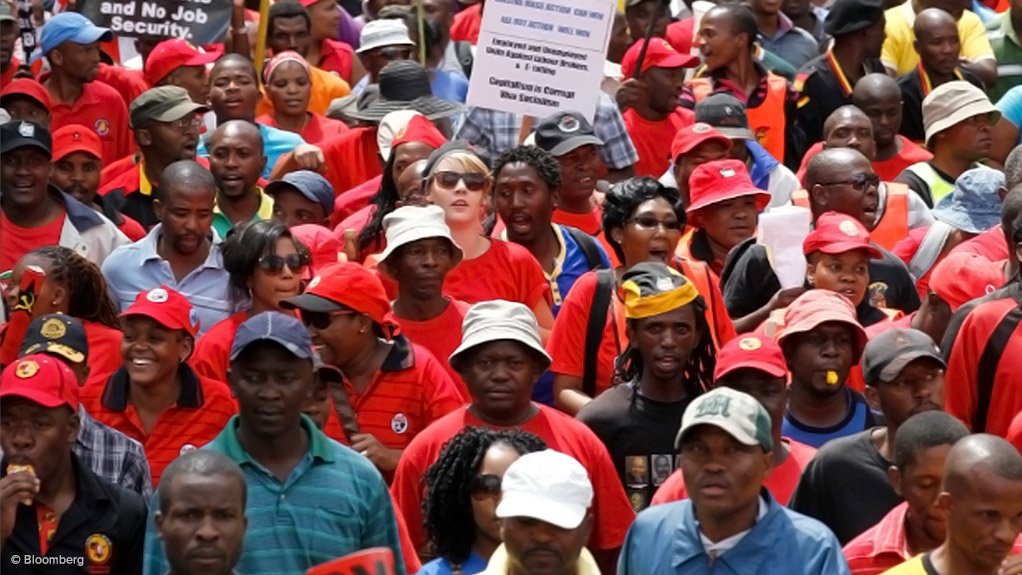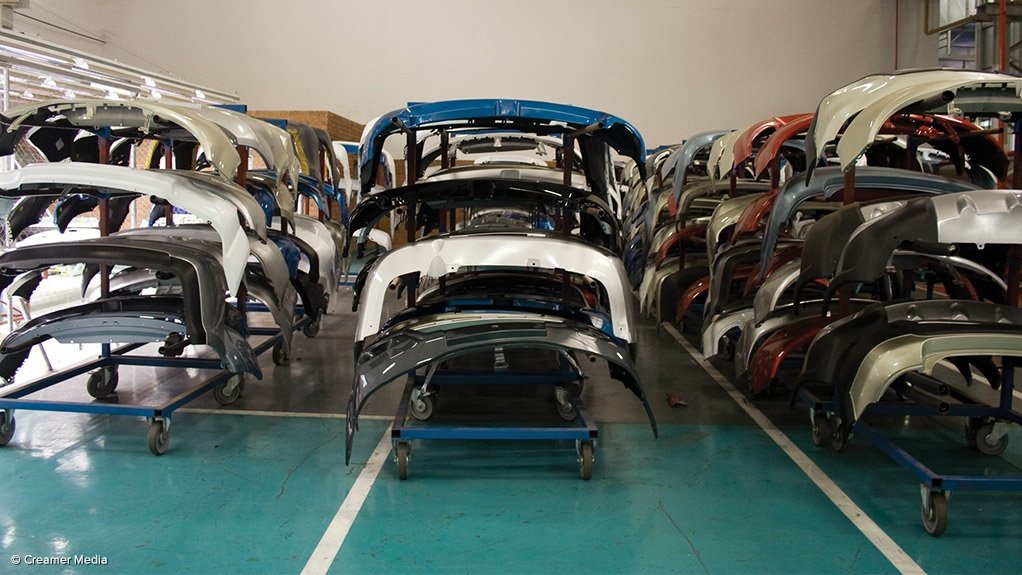SA should learn from Brazilian plan for labour market, Cosatu argues



COSATU South Africa’s National Development Plan indicates that minimum wages should be lowered to allow for more profits that would, in turn, create more jobs
Photo by Bloomberg
MANUFACTURING The National Growth Path and Ipap vision aims to radically expand the manufacturing sector as the engine of the economy
Photo by Duane Daws
The National Development Plan’s (NDP’s) economic and labour market strategies are flawed, said Congress of South African Trade Unions (Cosatu) secretariat strategies coordinator Neil Coleman at the National Science and Technology Forum’s second proSET President’s Forum, held in Sandton last month, which centred on the NDP and its implementation.
Cosatu believes that the minimum wage and employment aspects of the NDP should follow the example of the Brazilian experience. Former Brazilian President Lula da Silva, who served from 2003 to 2010, implemented a consolidation of a higher national minimum wage, the formalisation of the labour market, social protection, sound industrialisation development and improved macroeconomic policies in the country, leading to its dramatic advancement in ten years.
On the contrary, South Africa’s NDP indi-cates that minimum wages should be lowered to allow for more profits that would, in turn, create more jobs.
The Brazilian experience proved that this strategy would not work, as the extra profit made from lowered minimum wages would not be used to employ more people, explained Coleman.
He added that if the minimum wage was to be increased, in conjunction with improved macroeconomic policies and a solid industrial-isation plan, more money would be spent by consumers, thereby improving the economy and creating employment.
“The NDP is based on assumptions and problematic strategies and the economic dimension of the NDP is not coherent or evidence based, but highly ideological,” he said.
The NDP aims to create almost 11-million jobs, and reduce the unemployment rate to 6% and eliminate extreme poverty by 2030, but Cosatu believes the NDP will not achieve its targets because it fails to pursue the national growth path (NGP) and the Industrial Policy Action Plan (Ipap) vision of reindustrialising the economy. It further believes the NDP is premised on undermining worker rights and a low minimum-wage strategy.
The target of creating 11-million jobs relies heavily on small, medium-sized and microenterprises (SMMEs) and service-sector jobs. The NDP proposes that these sectors will create 90% of the new jobs, but SMMEs have shown little increase in their share of employment in the last ten years and a recent study of firm performance showed that job destruction was far higher than job creation in the SMME sector, he said.
The SMME-dominated, low-wage employ-ment strategy is different from the decent-work policy mandate of the African National Congress (ANC) and its alliance partners, and the economic policy documents of government.
The NGP and Ipap vision also aims to radically expand the manufacturing sector as the engine of the economy. The first phase of the NDP (2013 to 2018) is based on a low-wage, service-led and SMME-focused perspective, with no attempt to engage with the Ipap or the NGP and there is not a single reference to the Ipap in the entire 484-page NDP document, according to Coleman.
“The NDP, particularly with regard to the economy and labour market, needs to be realigned with the agreed ANC and its alliance partners’ position that the main content of the second phase of our transition must be a radical economic shift that needs to be reflected in the NDP,” he said.
The NDP proposes a ‘business as usual’ macroeconomic strategy involving fiscal restraint and budget surpluses; floating market-driven exchange rates; nonintervention in financial markets; a major focus on price stability, including inflation; cutting back on consumption expenditure, including implied cuts to public-sector wages and the size of the public sector.
“There is no mention of the need for an aggressive, systematic programme of macro-economic stimulus, despite the financial crisis. The NDP implies support in the ANC for greater fiscal restraint, combined with limited monetary policy easing. The NDP does recognise that volatility and the overvaluation of currency is a problem, but it is against open intervention. It is, therefore, unclear on how to combat these problems with the currency.”
Coleman explained that the NDP was also based on high levels of inequality that would persist until 2030, contrary to the policies of the ANC, which stated that redistribution must form a critical basis of the NGP.
The plan proposes that the Gini coefficient – a measure of statistical dispersion intended to represent the income distribution of a nation’s residents – will decrease slightly from 69% to 60% by 2030. In terms of current measurements, 60% would still make the country’s levels of inequality higher than that of any other major country in the world.
The average Gini coefficient for Organis-ation for Economic Cooperation and Devel-opment countries is between 25% and 30%, after taxes and transfers.
“The big picture of the plan is based on dubious assumptions and problematic strat-egies that leave the highly unequal structure of our economy and economic marginalisation of the majority essentially intact, with some tinkering around the edges. It does not address the injunction of the ANC Conference to advance a radical economic shift to address the challenges of this phase of our democratic transition,” he concluded.
Comments
Press Office
Announcements
What's On
Subscribe to improve your user experience...
Option 1 (equivalent of R125 a month):
Receive a weekly copy of Creamer Media's Engineering News & Mining Weekly magazine
(print copy for those in South Africa and e-magazine for those outside of South Africa)
Receive daily email newsletters
Access to full search results
Access archive of magazine back copies
Access to Projects in Progress
Access to ONE Research Report of your choice in PDF format
Option 2 (equivalent of R375 a month):
All benefits from Option 1
PLUS
Access to Creamer Media's Research Channel Africa for ALL Research Reports, in PDF format, on various industrial and mining sectors
including Electricity; Water; Energy Transition; Hydrogen; Roads, Rail and Ports; Coal; Gold; Platinum; Battery Metals; etc.
Already a subscriber?
Forgotten your password?
Receive weekly copy of Creamer Media's Engineering News & Mining Weekly magazine (print copy for those in South Africa and e-magazine for those outside of South Africa)
➕
Recieve daily email newsletters
➕
Access to full search results
➕
Access archive of magazine back copies
➕
Access to Projects in Progress
➕
Access to ONE Research Report of your choice in PDF format
RESEARCH CHANNEL AFRICA
R4500 (equivalent of R375 a month)
SUBSCRIBEAll benefits from Option 1
➕
Access to Creamer Media's Research Channel Africa for ALL Research Reports on various industrial and mining sectors, in PDF format, including on:
Electricity
➕
Water
➕
Energy Transition
➕
Hydrogen
➕
Roads, Rail and Ports
➕
Coal
➕
Gold
➕
Platinum
➕
Battery Metals
➕
etc.
Receive all benefits from Option 1 or Option 2 delivered to numerous people at your company
➕
Multiple User names and Passwords for simultaneous log-ins
➕
Intranet integration access to all in your organisation




















